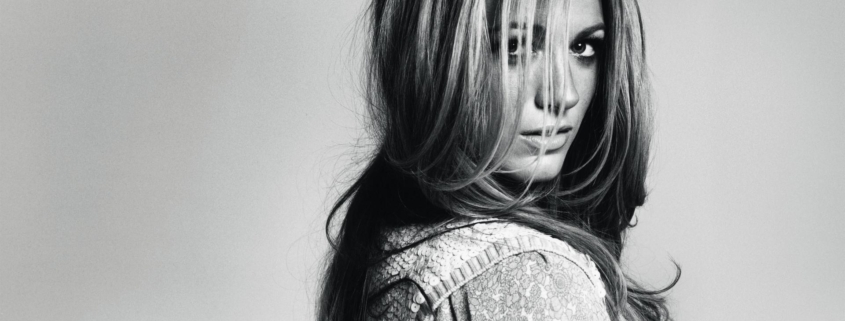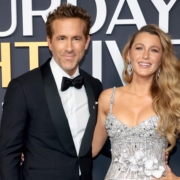Candace Owens GOT IT WRONG! The TRUTH Behind the Blake & Baldoni Power Play!
Ah, Hollywood. Where the glitz is shiny, the scandals are scripted, and the real power plays happen behind the scenes. If you’ve been following the Blake Lively, Justin Baldoni, and Ryan Reynolds saga, you probably have a few theories yourself. And if you’ve heard Candice Owens’ take—well, buckle up, because she got it wrong.
A Quick Recap of the Chaos
Here is the gist: Blake Lively and Justin Baldoni were set to star in It Ends With Us, a film adaptation of Colleen Hoover’s novel. Tension between the leads became evident—flirtation, power struggles, and an eventual upheaval that left Baldoni on the chopping block. Enter: Ryan Reynolds.
Candice Owens’ take? That Reynolds, in a fit of jealousy, orchestrated Baldoni’s professional demise because obviously, he couldn’t stand his wife sharing any on-screen chemistry with another man. A classic Hollywood love-and-jealousy saga, right?
Occam’s Razor? More Like Occam’s Hollywood.
Normally, the simplest explanation is the correct one. The world at large would agree that jealousy and romantic tension drove this mess. But that’s exactly why they’re wrong. Hollywood doesn’t run on love—it runs on greed, fame, and cold, hard cash.
If you want to understand what went down, you need to stop thinking like a romance novel fan and start thinking like a Wall Street executive. And nobody plays the Hollywood business game quite like Ryan Reynolds.
More Money, More Power (Shoutout to Biggie)
Let’s call it what it is: a power move. Reynolds didn’t orchestrate Baldoni’s downfall because of some fragile husband syndrome. He did it because the long game promised a much bigger payday.
The seeds of this coup were planted from day one. Blake Lively? She never signed her final contractual agreement early on, leaving the studio and producers dangling with no leverage over her. That meant that, when negotiations got tough, she had an ace in her pocket: walking away. And with a star like her threatening to exit, guess who suddenly had leverage? Yep—Team Reynolds.
The Sex, The Scandal, The Bait-and-Switch
The flirtation between Blake and Baldoni? A smokescreen. The on-set chemistry? A misdirect. The sexual tension wasn’t the fuel to Reynolds’ fire—it was a distraction. The real move was behind the scenes, where one by one, Blake’s network was quietly installed into the film’s production.
- Blake becomes a producer – More creative and financial control.
- Reynolds’ marketing company takes the lead on promotions – Ka-ching.
- A-list music artists with deep ties to Blake and Ryan suddenly sign on – Coincidence? Please.
- Baldoni, once a producer and star, reduced to a footnote – Ouch.
The alleged sexual scandal? The ultimate leverage. A chess move that ensured Baldoni had no chance to contest his diminished role without risking reputational damage. Once he was neutralized, Team Reynolds had full control over the film’s direction and, more importantly, its financial benefits.
Not His First Rodeo, Not His Last?
Ryan Reynolds isn’t just an actor—he’s a business flipper. He finds undervalued assets, buys in, and maximizes profit before moving on (see: Aviation Gin, Mint Mobile, Wrexham). So why wouldn’t he apply the same blueprint to Hollywood projects?
Now, consider his holiday flick Spirited, where he literally plays a character that manipulates outcomes behind the scenes. Art imitating life? Or is Reynolds just getting a little too comfortable playing puppet master?
And if you think It Ends With Us is the only time he’s pulled this off, here’s a juicy thought: What if this was the exact playbook he used to take control of the Deadpool franchise?
The Hollywood Playbook: How Power Moves Are Made
Reynolds isn’t the first to master Hollywood’s unspoken rulebook. Let’s connect the dots:
- 1996 – Tom Cruise forces full creative control over Mission: Impossible, setting a precedent for actors becoming producers.
- 2009 – Leonardo DiCaprio’s contracts begin requiring studio commitment to sustainability efforts—a strategic power move disguised as environmental activism.
- 2016 – Ryan Reynolds turns Deadpool from a studio-controlled film into a franchise where he dictates tone, cast, and creative direction.
- 2024 – Reynolds and Lively orchestrate their It Ends With Us takeover under the radar.
Are these power plays a coincidence? Or is Reynolds simply following a playbook written by Hollywood’s biggest players before him?
The Psychology of Power: Why Reynolds Wins
Reynolds’ real superpower isn’t his acting chops—it’s his ability to play Hollywood like a chessboard. Consider this:
- He leverages humor to deflect scrutiny – A fun-loving brand persona makes it easier to pull strings without raising alarms.
- He builds influence outside of acting – Owning a successful gin company and a telecom brand isn’t just business—it’s diversification of power.
- He controls the narrative – His team is media-savvy, carefully curating leaks and announcements to work in his favor.
Reynolds doesn’t just land roles—he builds empires.
Just a Fun Theory (Don’t Sue Me, Ryan)
Look, this is all entertainment. The Reynolds team could be wonderful human beings—I don’t know them personally. We’re just here to connect some dots and sip some tea. But if there’s one thing Hollywood has taught us, it’s that the real drama isn’t happening on screen—it’s happening in boardrooms and backlots.
So next time you hear about a Hollywood feud, skip the romance novel theory. Follow the money. Because in Tinseltown, love is fleeting, but power and profit? Now that’s a real happily ever after. That’s what we need to watch for. Drop your theories below—no account needed; you can leave a comment anonymously.





Leave a Reply
Want to join the discussion?Feel free to contribute!